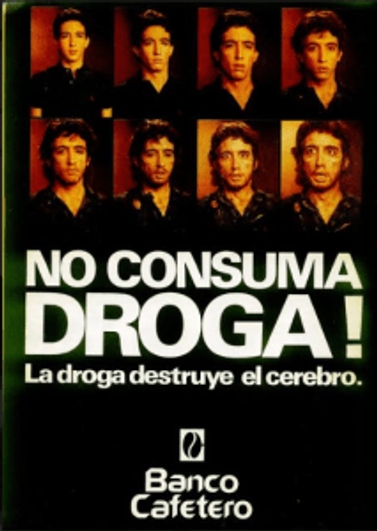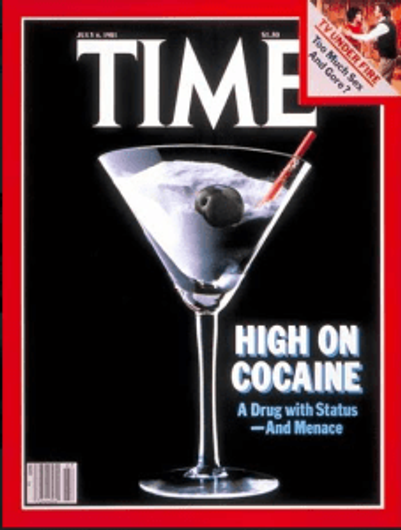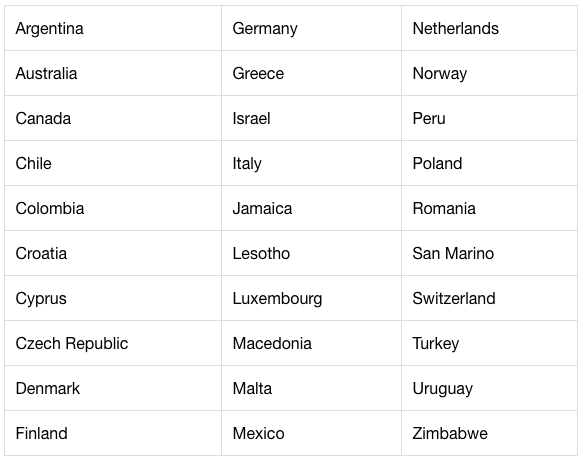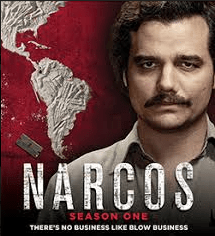Narcotics and Western Civilization: A Student-Based Reflection
- Stefano Tijerina
- Oct 15, 2019
- 6 min read
Updated: Aug 29, 2023
Editor’s Note: Today’s post comes from Dr. Stefano Tijerina, a lecturer in management and the Chris Kobrack Research Fellow in Canandian Business History at the University’s of Maine’s Business School. He adds to our Teaching Points series, on bringing drug history into the classroom.


As an educator, I had the opportunity to deconstruct those ideas in the classroom and revise the very limited background and historical knowledge to which American students are exposed. I wanted to find out if the taboo surrounding global intoxicants could be dismantled through critical thinking and self-reflection. Education about the history and impact of drugs on Western societies, I argued, had been overlooked and systematically replaced by cookie cutter explanations, rhetoric, and justifications that only reinforced the idea of “say no to drugs” without allowing the individual to think and question the institutional message. I wanted students to question: Why drugs are consumed by different cultures? Where do intoxicants come from? What is their impact on the human brain? What is their impact on human emotions? What is their impact on society? What is their impact on culture? How does culture impact the relationship with intoxicants? Why are some substances legal and why are others illegal? Who decides and why? Why does this change from culture to culture? How does that dynamic impact human behavior? How does that dynamic impact cultural dynamics? How does it impact the natural environment?
We came to the conclusion that social and cultural taboos constructed in the West throughout the twentieth century took intoxicants away from the public and placed its legal trust in the hands of the private sector, and more specifically the emerging pharmaceutical industry of the time. History showed that these were not the most ethical protectors of the secrets of the world of intoxicants, as evidenced in today’s global opioid crisis. As we discussed in class, the industry is not only interested in building a pain-killer dependent culture in the United States, but across the global market system.
We connected capitalism with intoxicants and came to the conclusion that the market had the power to influence government in order to legitimize certain intoxicants while criminalizing others–that, as in the case of the marijuana legalization movements in countries like Canada and the United States, government-business partnerships were capable of deconstructing the taboo and effectively use science, economic theory, and its propaganda systems in order to legitimize the new social construct.

Countries that have legalized medical marijuana as of 2018
The class of fourteen students showed that education, self-awareness, critical thinking, and the actual process of deconstructing their own cultural taboos were powerful tools to enhance their individual understanding about the world that surrounds them. Perhaps the most interesting conclusions were that Western culture, and our culture for that matter, has been shaped by those that experimented with drugs; that Western culture appropriated the experiences of other cultures with intoxicants and repackaged them, through science, technology and marketing, in order to integrate them into Western cultural dynamics; that throughout the twentieth century the West constructed its own global markets in order to supply its societies with intoxicants while criminalizing their use at the same time; that modern nations and markets have been built around narcotics; that a deregulated financial world has been constructed by the West in order to use money laundering as a mechanism to move illicit money across the world; that a multi-billion dollar industry has been erected by the West around the concept of security that parallels the dynamics of narcotics trafficking; that domestic policy in the West, and particularly in the United States, has been systematically erected in order to legally persecute minority groups and contain them in an emerging multi-billion penitentiary industry that has global outreach; and that human rights and environmental justice are violated by global stakeholders both in the supply and the demand side of the equation.

We looked at literature, film, art, sports, food, politics, economics, language, and the natural environment in order to see its transformation, as the West redefined the human relation with natural intoxicants. We looked at capitalism, technology, science, research and development, and the impact of intoxicants. We even focused on how science transformed the world from natural intoxicants to chemical-based intoxicants, and how this new world of artificial narcotics changed the culture and the industry of drugs.
From the military experiments with LSD to the popular use of Adderall on campuses today, and everything in between, students dug deeper and deeper into the subject. In some instances they conducted additional research on their own, established conversations outside the classroom, took leadership of the classroom dynamic, and created a unique pedagogical experience that I am yet to replicate in other classes.
We, as a class, came to the conclusion that the present world is heavily influenced by intoxicants, both legal and illegal; that the only way to understand the present reality is to understand the historical dynamics that marked this trajectory; and that the future dynamics of the global economy will be even more susceptible to the interaction between humans and intoxicants as the taboos are dismantled culture by culture.
Course Description and Objectives (HON 338)
This course provides an overview of the role that narcotics have played in the construction of Western Civilization. We will approach this issue from an international perspective, analyzing its impact on nation building, economic development, national security, domestic policy, foreign policy, social movements, law enforcement, institutional development, trade, commerce, consumption, international finance, human rights, and the environment. The objective is to center less on the current propaganda and national agendas that have centered on security and instead concentrate on how Western Civilization’s relations to narcotics have shaped their political, social, and economic culture, and how this relationship has impacted the world; for example, the impact on indigenous cultures and modern nation states. We will move in a historical linear fashion, without ignoring the systemic complexities of the issue, concluding with issues of globalization and the role that the West plays in defining this emerging phenomenon. Multimedia, together with primary and secondary sources will be utilized in order to help you navigate this complex issue as it developed and expanded throughout the twentieth century and up to the present time.
Course Themes
Human interaction with intoxicants from the beginning of time
Hallucinogens and early trade (Dutch experience)
Columbus encounter and hallucinogens
Opium Wars
Drugs and the Western Creative World of the 18th and 19th century
Drugs and the Western Creative World of the 20th century
The Commodification of Narcotics
Public Policy and Intoxicants in the West
Criminalization and Intoxicants in the West
Supply – Demand-Supply and the Environmental Impacts of Narcotics
Social Displacement and Narcotics
Security and Narcotics
Entrepreneurship and Drugs
Pop Culture and Drugs
Race, Class, Gender, Ethnicity and Drugs image 6
Student Feedback
“Being able to talk openly with one another on the taboo subject of narcotics trafficking and use in Western society has helped create a strong bond among classmates, which eventually led to many discussions outside of class about the topic. We began a group chat where we were able to share articles and continue the discussions out of pure intrigue. It wasn’t hard to draw connections between the class material and current events because narcotics have become so tightly woven into the fabric of our culture. It was easy for us to take ownership of this class because I think that we all have a stake in the matter of narcotics, whether it be personal experience, interest or otherwise. Being on a college campus where it seems like drugs and alcohol keep everyone going, this topic and subsequent dialogues are incredibly pressing issues and very relevant to our lives as undergraduates in America.”
“One of the most incredible aspects of this course was the students’ ability to view the material at a higher level than usual – where we could study this taboo subject and have rich, fruitful discussions about what it means to be a person in Western society and what we’ve learned about the influence of narcotics over our culture.”
“The most effective part of the course was that, together, we created an honest, open environment to discuss subjects that are considered highly taboo in modern society. Normally, the topic of drugs is avoided, but in our class we created a judgment-free zone where anyone was welcome to share their opinions and experiences.”
“I think something else we all learned pretty quickly was that the subject material of this class is very important and relevant in today’s world. All the history we learned for the class started to make the present make more sense. I felt that I had an obligation to educate others on the material of this class, because people are being harmed by our ignorance. Harmed in this sense means people being killed over prohibitionist-drug-policy related violence, and also harmed in the sense that people are going to jail for non-violent drug offenses, and in many ways their lives are being ruined by being sent to jail.”
“This class alone has shaped the future to come for me. I now have interest in pursuing drug policy. I have been politically active from the age of 17 until the present, but this class alone instilled within me the confidence that I can talk intelligently to high-ranking politicians and maybe even know more about this subject of drug-policy than them.”
“Personally, I thought the class provided an interesting look on the struggles in other countries and how those struggles are caused by us.”
“I think this class gave us a space to connect narcotics with other very important societal issues, such as the media, income inequality, and health care. Once we all realized how interesting the subject was and how it really did connect with other parts of our lives on so many levels.”




